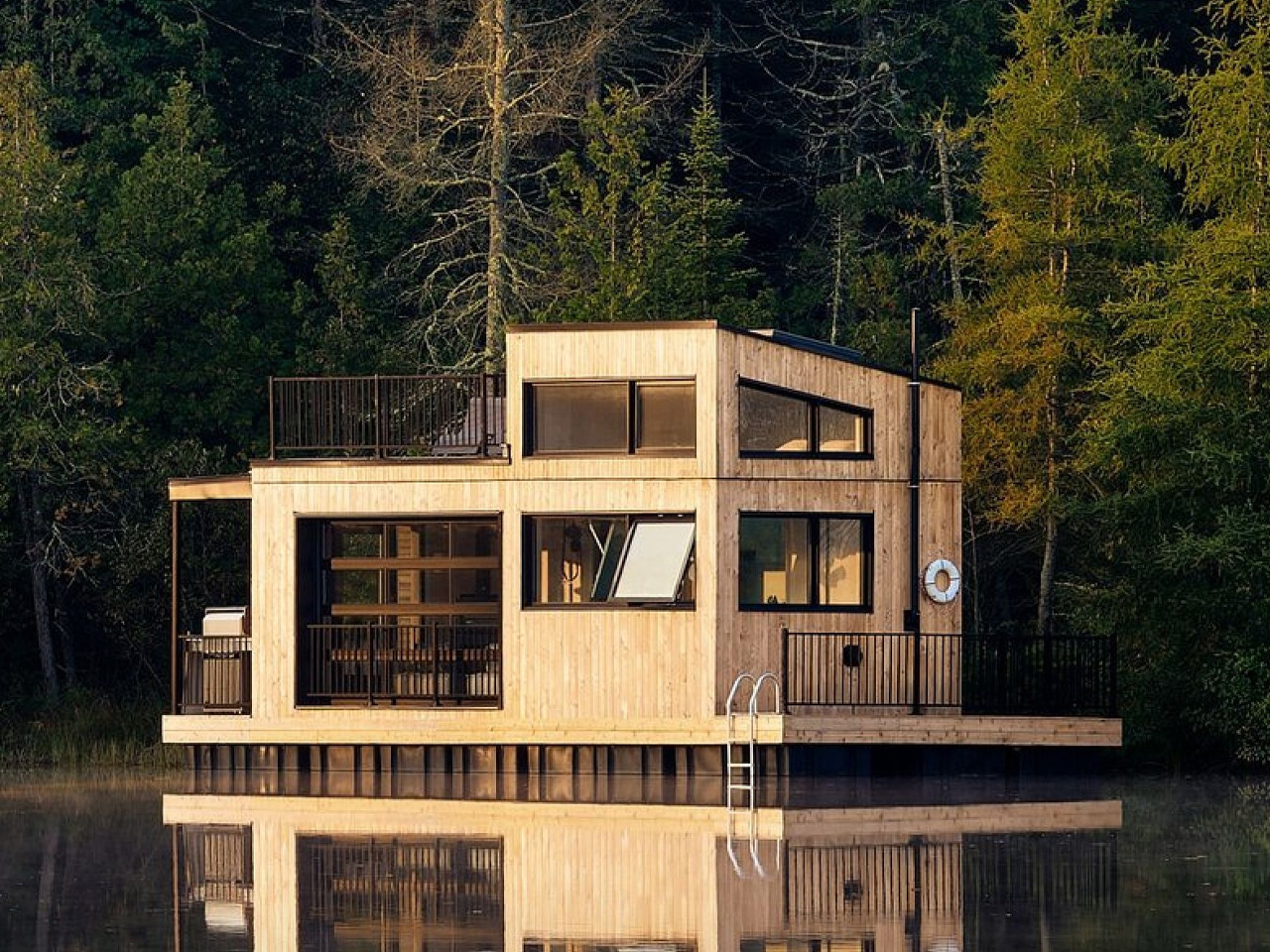The genesis of Bora Boréal reads like architectural folklore. Nicolas Robitaille and Pierre-Luc Routhier, childhood friends bound by their shared passion for nature and building, conceived their floating cabin concept during a lakeside camping trip. What began as Nicolas joking about pulling Pierre-Luc’s air mattress onto the water while he slept evolved into something profound. The image of waking up on a floating island lingered, crystallizing into a vision that would redefine wilderness accommodation. Their playful moment became the foundation for Quebec’s most innovative hospitality venture.
These aren’t conventional houseboats but carefully engineered retreats that merge contemporary design with off-grid functionality. Each cabin measures 35 feet long by 12 feet wide, secured to shorelines with metal cables while maintaining the illusion of complete freedom. The structures sit atop reinforced PVC floats filled with additional foam, creating stable platforms that respond gently to water movement. This engineering allows guests to experience the lake’s rhythm without sacrificing comfort or safety.
Designer: Nicolas Robitaille and Pierre-Luc Routhier
The floating sanctuaries are architectural minimalism at its peak. Clean lines and pale wood create Scandinavian-inspired aesthetics that complement rather than compete with the surrounding wilderness. Expansive windows blur the boundaries between interior and exterior spaces, while retractable glass doors open entire walls to the lake. The sleeping lofts feature metal mesh flooring that filters natural light to the dining areas below, creating layered illumination throughout the day. A serene connection to water is always maintained, while delivering the refined comfort expected in contemporary hospitality.
Self-sufficiency is seen throughout the cabins. Solar panels power LED lighting and small appliances, while composting toilets eliminate the need for traditional plumbing systems. Propane fuels compact kitchens equipped for serious meal preparation, and wood stoves provide warmth during Quebec’s harsh winters. When lakes freeze, the cabins become centerpieces for natural skating rinks, proving their year-round viability. This off-grid philosophy minimizes environmental impact while maximizing guest independence from traditional infrastructure.
The project expanded beyond its original Saint-Brigitte-de-Laval location to include sites in Quebec’s Eastern Townships, specifically around Lake Batley in Bury. The newer development represents a $6 million investment, with substantial government support recognizing tourism potential. Two accommodation types serve different needs: MiniBora units sleep up to four guests, while the larger BoraVilla models accommodate six. Some units feature rooftop terraces perfect for stargazing in the Mont-Mégantic International Dark Sky Reserve.
Bora Boréal offers something unique – it delivers authentic experiences to travelers without sacrificing design sophistication. The floating cabins offer something increasingly rare: genuine disconnection paired with architectural excellence. Robitaille and Routhier transformed their childhood friendship and shared vision into structures that invite contemplation while celebrating Quebec’s natural beauty. The beauty and success of the cabins is a testament to the fact that most iconic architecture often emerges from the simplest human moments.
The post Floating Cabins Are Ready To Rent Year-Round, Redefining Wilderness Retreats in Quebec first appeared on Yanko Design.

